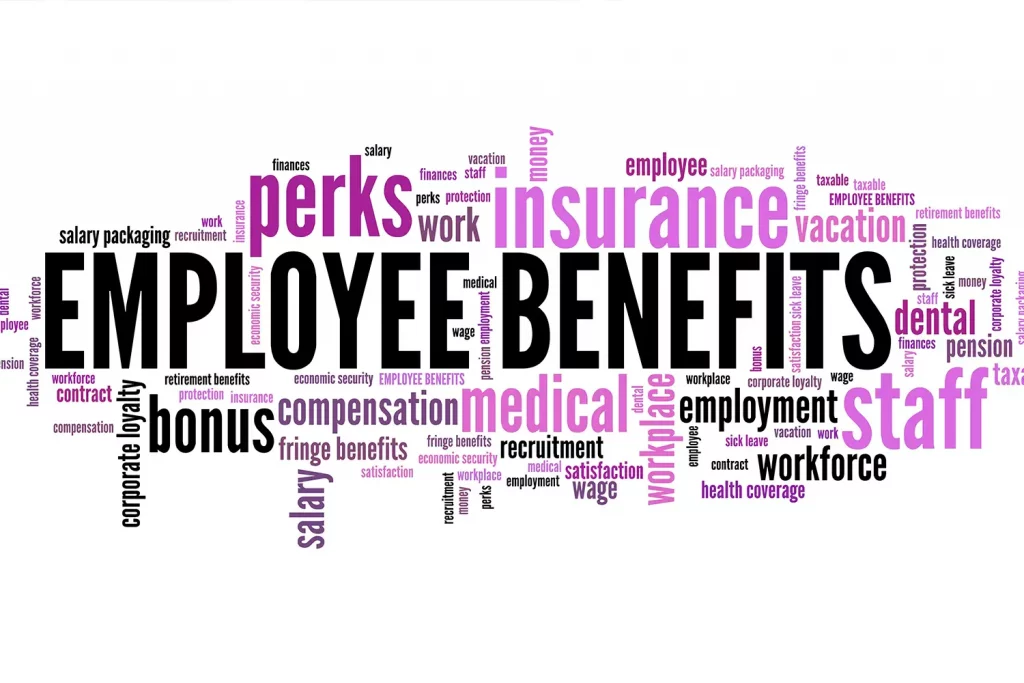Company benefits: Their impact on settlement agreements
Company benefits such as private health insurance or a car can be a great way to attract good staff and provide extra rewards for your work. If you’re leaving your job because you’ve been mistreated by your employer and have been offered a settlement agreement, you may even be able to take the benefits with you or continue to use them after you leave.
Rated 4.8 Stars in Over 1,000 Reviews
Here we explain what company benefits are, the different types of benefits that can be offered and how they can be used to influence settlement agreements.
See also our guide on Settlement agreements

What are company benefits?
Company benefits (aka employee perks) are a form of remuneration that’s provided to you as an employee, in addition to your regular salary.
They are offered as an incentive and vary depending on your role, the nature and size of the organisation and the budget your employers have to spend.
Companies also put together benefits packages to attract prospective employees, retain them and help improve their work-life balance and overall career goals.
What kinds of company benefits are offered?
While there are no set forms of company benefits, the types offered tend to be similar from one company to another, as you can see from the examples below.
You may be able to negotiate a better benefits package that includes additional features before you accept a job offer, depending on how keen the company is to hire you.
Health insurance
A company offering health insurance plans usually does so in collaboration with an insurance provider. The company will pay for the insurance premiums for you and in some cases, it may also offer to cover your immediate family. Some health insurance packages may include dental and eye insurance that can cover the cost of regular check-ups.
Pensions
Another common company benefit offered is pensions, which tend to come in various forms. For example, occupational benefits are schemes set up by employers that can either be final salary schemes or money purchase schemes:
- A final salary scheme increases in line with your pay, with a final pay-out based on how much you earn at retirement age and how long you have been employed.
- Money purchase schemes require you to pay money into an investment programme with the aim of giving you a pay-out when you retire. You pay a certain percentage of your salary each month, and in some instances, your employer may also offer a regular contribution. The amount you receive will depend on how much has been paid in and the overall performance of the investments.
See also our guide on tax on pensions in settlement agreements

Shares
Another financial benefit offered by some businesses is company shares. This allows you to buy a certain number of shares at an often-reduced price over a certain period of time. They can be offered by large companies that are publicly trading or even start-ups that want to fuel company growth and offer the opportunity for you to invest in the business. Because you buy at a low price, if the share value grows and you decide to sell at a later date, you can make a healthy profit.
If you are negotiating a severance package when leaving the company, your share options should also be factored into the settlement agreement.
Read more about shares and severance packages here.
Company vehicles and allowances
Depending on your job role, a company car may be provided, either to support your day-to-day job activities (eg if you are a field sales rep) or to recognise the status of your role (such as a director-level position).
Your employer sometimes provides a car that must be returned when you leave the role or provides a monthly mileage allowance that can be used to cover the cost of using your own car.
Extra holiday leave
Certain levels of paid annual holiday must be offered by employers, although some companies may offer additional paid leave as part of a benefits package.
This can be anything from an extra few days to multiple weeks a year on top of the minimum legal requirement, depending on your job role and its status.

Do you have a right to keep your company benefits?
Company benefits are usually regarded as part of the culture of a company, which means if an employer decides to change the benefits or withdraw them, they can do so at their discretion.
This can happen if they need to make financial cutbacks or if they simply feel it is time for a change of direction.
For example, company bonuses may be renegotiated or modified if cutbacks are being made. The company has a right to change or even withdraw them completely as they are not a statutory requirement.
This also applies to performance-related bonuses, as these are usually linked to how the company is performing, so if it is going through a difficult period, it may struggle to pay out as usual.
Company benefits vs statutory benefits
Company benefits differ from statutory benefits which must be provided to you if you meet the eligibility requirements. This includes things such as maternity leave, holiday pay and sick pay which employers are legally obliged to offer.
It’s important to be aware of the differences between these two types of benefits and ensure that all the necessary details are included in your employment contract.
If your employer wishes to change some of the statutory benefits that you are entitled to, they can only do so with your consent. See our page on changing your employment contract for more.
How do company benefits affect settlement agreements?
Company benefits have an important role to play when it comes to negotiating a settlement agreement.
Whether you are negotiating due to a grievance raised with your employer, or because you are being made redundant, if you received company benefits during your term of employment, you can negotiate to include them in the settlement agreement.
While every settlement agreement is different, many contain both financial and non-financial aspects. For example, the financial terms usually cover:
- Wages
- Holiday pay
- Bonus pay
- Redundancy pay
The non-financial elements will relate to the company benefits you received during employment that you want to include in the agreement.
This can include things such as ongoing ownership or use of:
- A company car
- A work device (mobile/laptop etc.)
- Other benefits such as health insurance, gym membership etc.
What your employer is willing to offer will depend on the severity of the accusations made against them and their willingness to avoid an employment tribunal.
Bearing that in mind, you should always seek independent legal advice before entering negotiations with your employer so you have a realistic idea of what you can ask for in your settlement agreement. Meantime, try our settlement calculator to get an idea of the amount you could get.
Next steps
If you have been unfairly treated or discriminated against by your employer and are not satisfied with their response, you may be able to negotiate a settlement agreement that includes retention of at least some of the benefits you received in employment.
Monaco Solicitors are employment law specialists who are experts in negotiating such settlement agreements on your behalf. We can offer you expert guidance and advice on what to do next and may also be able to offer you no win no fee terms, so you don’t pay us anything in fees unless we win your case for you.
If we can help you, we always seek to resolve your issue as quickly as possible, to your best advantage.
To find out more about our services and the possibility of a no-obligation consultation, contact us:
- Via this link
- Phone: 020 7717 5259
- Email: communications@monacosolicitors.co.uk
Our related guides
- Share options in severance packages
- Tax on pension payments and settlement agreements
- Bonus payments for senior executives: Legal implications
- Bonuses in employment termination packages
- Commission payments and workplace disputes
- Settlement agreements in employment conflicts: How much should I get?
- Settlement agreement negotiations
- Employment tribunals: An overview

